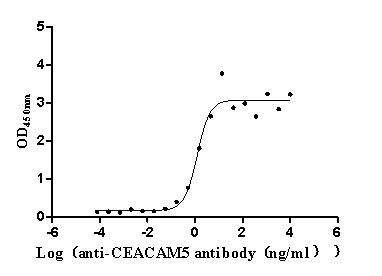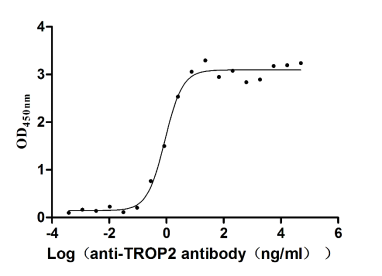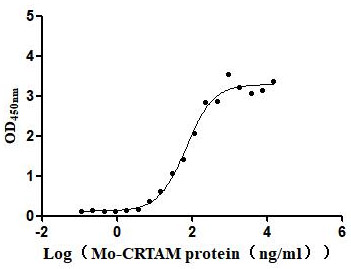Recombinant Pig Leukocyte elastase inhibitor (SERPINB1)
In Stock Promotion-
货号:CSB-EP021065PI
-
规格:¥2328
-
促销:

-
图片:
-
其他:
产品详情
-
纯度:Greater than 85% as determined by SDS-PAGE.
-
基因名:SERPINB1
-
Uniprot No.:
-
别名:SERPINB1; ELANH2Leukocyte elastase inhibitor; LEI; Leukocyte neutral proteinase inhibitor; LNPI; Serpin B1
-
种属:Sus scrofa (Pig)
-
蛋白长度:Full Length
-
来源:E.coli
-
分子量:50.0 kDa
-
表达区域:1-378aa
-
氨基酸序列MEQLSAANTRFALDLFRALNESNPAGNIFISPFSISSALAMILLGTRGNTEAQMSKALHFDTVKDIHSRFQSLNADINKCGASYILKLANRLFGEKTYHFLPEFLASTQKTYGAELASVDFLRASEEARKAINEWVKEQTEGKIPELLASGVVDSATKLVLVNAIYFKGSWQEKFMTEATKDAPFRLNKKDSKTVKMMYQKKKFPFGYIKELKCRVLELPYQGKDLSMVILLPDSIEDESTGLRKIEQHLTLEKLNEWTKPDNLELLEVNVHLPRFRLEESYDLNAPLARLGVQDLFGSRADLTGMSEARDLFISKVVHKAFVEVNEEGTEAAAATAGIAVFAMLMPEEDFIADHPFIFFIRHNPSSNILFLGRLSSP
Note: The complete sequence including tag sequence, target protein sequence and linker sequence could be provided upon request. -
蛋白标签:N-terminal 10xHis-tagged and C-terminal Myc-tagged
-
产品提供形式:Liquid or Lyophilized powder
Note: We will preferentially ship the format that we have in stock, however, if you have any special requirement for the format, please remark your requirement when placing the order, we will prepare according to your demand. -
缓冲液:Tris-based buffer,50% glycerol
-
储存条件:Store at -20°C/-80°C upon receipt, aliquoting is necessary for mutiple use. Avoid repeated freeze-thaw cycles.
-
保质期:The shelf life is related to many factors, storage state, buffer ingredients, storage temperature and the stability of the protein itself.
Generally, the shelf life of liquid form is 6 months at -20°C/-80°C. The shelf life of lyophilized form is 12 months at -20°C/-80°C. -
货期:3-7 business days
-
注意事项:Repeated freezing and thawing is not recommended. Store working aliquots at 4°C for up to one week.
-
Datasheet & COA:Please contact us to get it.
相关产品
靶点详情
-
功能:Neutrophil serine protease inhibitor that plays an essential role in the regulation of the innate immune response, inflammation and cellular homeostasis. Acts primarily to protect the cell from proteases released in the cytoplasm during stress or infection. These proteases are important in killing microbes but when released from granules, these potent enzymes also destroy host proteins and contribute to mortality. Regulates the activity of the neutrophil proteases elastase, cathepsin G, proteinase-3, chymase, chymotrypsin, and kallikrein-3. Acts also as a potent intracellular inhibitor of GZMH by directly blocking its proteolytic activity. During inflammation, limits the activity of inflammatory caspases CASP1, CASP4 and CASP5 by suppressing their caspase-recruitment domain (CARD) oligomerization and enzymatic activation. When secreted, promotes the proliferation of beta-cells via its protease inhibitory function.; May be cleaved leading to a loss of its anti-protease activity and to the appearance of an endonuclease activity. However no catalytic site was identified.
-
亚细胞定位:Secreted. Cytoplasm. Cytolytic granule. Early endosome.
-
蛋白家族:Serpin family, Ov-serpin subfamily
-
数据库链接:
STRING: 9823.ENSSSCP00000001081
UniGene: Ssc.1303
Most popular with customers
-
Recombinant Human Membrane cofactor protein (CD46), partial (Active)
Express system: Mammalian cell
Species: Homo sapiens (Human)
-
Recombinant Human Heat-stable enterotoxin receptor (GUCY2C), partial (Active)
Express system: Mammalian cell
Species: Homo sapiens (Human)
-
Recombinant Mouse Prolactin receptor (Prlr), partial (Active)
Express system: Mammalian cell
Species: Mus musculus (Mouse)
-
Recombinant Human Signal transducer CD24 (CD24)-Nanoparticle (Active)
Express system: Mammalian cell
Species: Homo sapiens (Human)
-
Recombinant Human Claudin-18.2 (CLDN18.2)-VLPs (Active)
Express system: Mammalian cell
Species: Homo sapiens (Human)
-
Express system: Mammalian cell
Species: Homo sapiens (Human)
-
Recombinant Human Tumor-associated calcium signal transducer 2 (TACSTD2), partial (Active)
Express system: Mammalian cell
Species: Homo sapiens (Human)
-
Recombinant Mouse Cell adhesion molecule 1 (Cadm1), partial (Active)
Express system: Mammalian cell
Species: Mus musculus (Mouse)

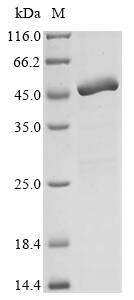


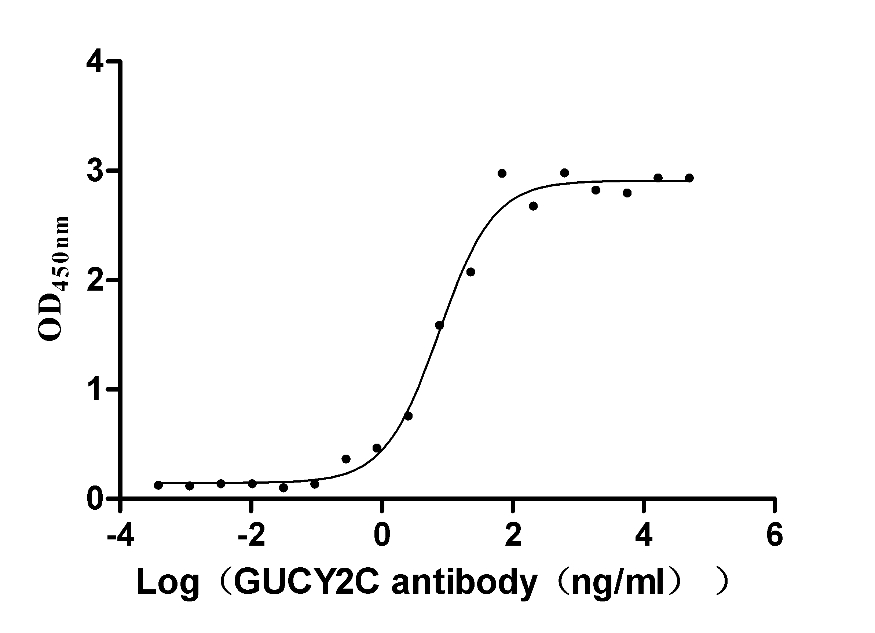
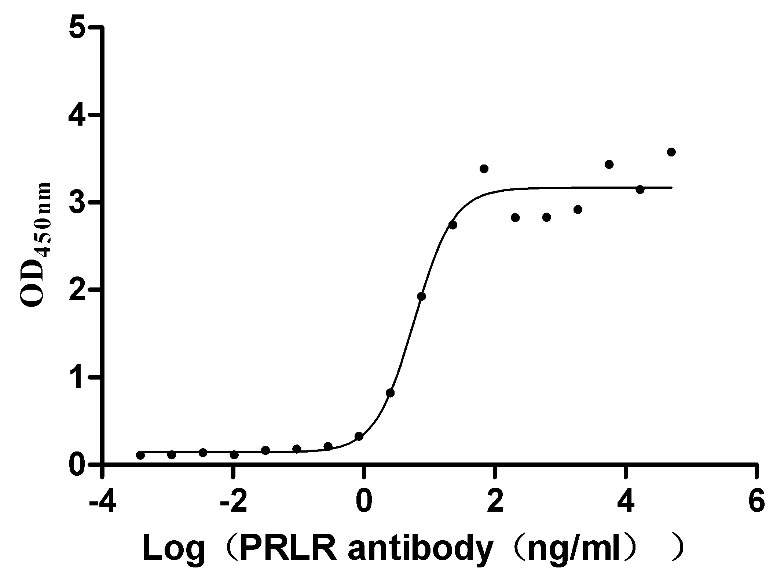
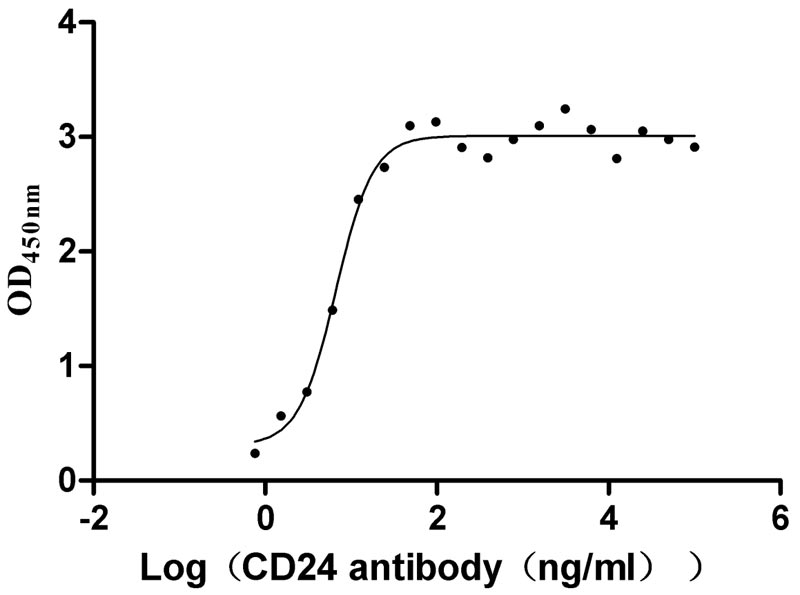
-AC1.jpg)
